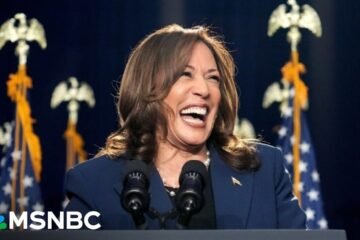Foreign Policy Under Trump vs. Harris: A Comparative Analysis
In a recent discussion on “Mornings with Maria,” various experts weighed in on the differences in foreign policy between the Trump administration and the current administration led by President Biden and Vice President Kamala Harris. Danielle Alvarez joined the conversation to shed light on these critical issues.
Trump’s Era: Peace Through Strength
President Trump emphasized that during his tenure, there was historic peace achieved through a doctrine of “peace through strength.” He pointed out that under his leadership, there were no invasions by Russia into Ukraine, no aggression from Iran towards Israel, and no thoughts from China about invading Taiwan. The biggest embarrassment, according to Trump, was the situation in Afghanistan, which he believes would have never happened under his administration.
Chaos Under Harris
Danielle Alvarez echoed Trump’s sentiments, stating that the world is witnessing chaos because Kamala Harris is perceived as weak. She argued that the Biden-Harris administration has failed, and our adversaries are laughing at them. Notably, there have been attacks by Hamas on Israel and increased boldness from China. According to Alvarez, the world is unsafe because Harris is at the helm, propping up Joe Biden while allegedly lying about his health for three and a half years. She concluded by calling for the re-election of Donald Trump, emphasizing that his administration brought peace and safety through American strength.
Concerns from Israel
Carley brought up a report from Politico stating that the Israeli government is worried about a potential Kamala Harris administration, viewing her as more sympathetic to the Palestinian side compared to Biden. Alvarez responded that such concerns would not exist under a Trump administration. She criticized Harris as being “dangerously liberal” and pointed out that she has been rated more liberal than Bernie Sanders by GovTrack. According to Alvarez, Americans know just how radical and left-leaning Harris is.
Support for Pro-Hamas Sympathizers
Alvarez highlighted Harris’ support for pro-Hamas sympathizers and protesters on college campuses when attacks occurred. She argued that such a scenario would not have happened under Trump, who was able to deliver peace in the Middle East through the Abraham Accords, a feat many thought was impossible. Alvarez concluded that this is the kind of leadership that needs to be returned to.
Harris on Border Security
During a rally in Atlanta, Vice President Harris took a different stance on the border issue, accusing Donald Trump of not caring about border security and only caring about himself. She pledged to bring back the border security bill that Trump allegedly killed and to show what real leadership looks like.
Rewriting History
Todd pointed out that several of Harris’ claims were false, noting that Trump did not kill the border security bill and has not been in office. He added that Harris herself rejected more border funding in 2019 and compared ICE to the KKK. Alvarez laughed at Harris’ attempts to rewrite history, reminding everyone that Harris was the original “border czar” who talked about decriminalizing border crossings and abolishing ICE. She emphasized that the border was secure under Trump and that the current situation is devastating for the country.
Alvarez concluded by stating that people are aware of Harris’ failures on this issue, and it was evident at her recent event where the crowd left as soon as she started talking, thinking they were there for a concert. She asserted that Harris cannot gaslight people who know her as the original border czar and a failure on this issue.
Conclusion
The discussion highlighted the stark differences in foreign policy and border security approaches between the Trump administration and the current Biden-Harris administration. While Trump and his supporters argue that his tenure brought peace and security, the current administration faces criticism for perceived weakness and failures. As the debate continues, it remains to be seen how these issues will impact future elections and the direction of U.S. foreign policy.
Read More: The Intersection of Business and News: How Current Events Shape Corporate Strategies
